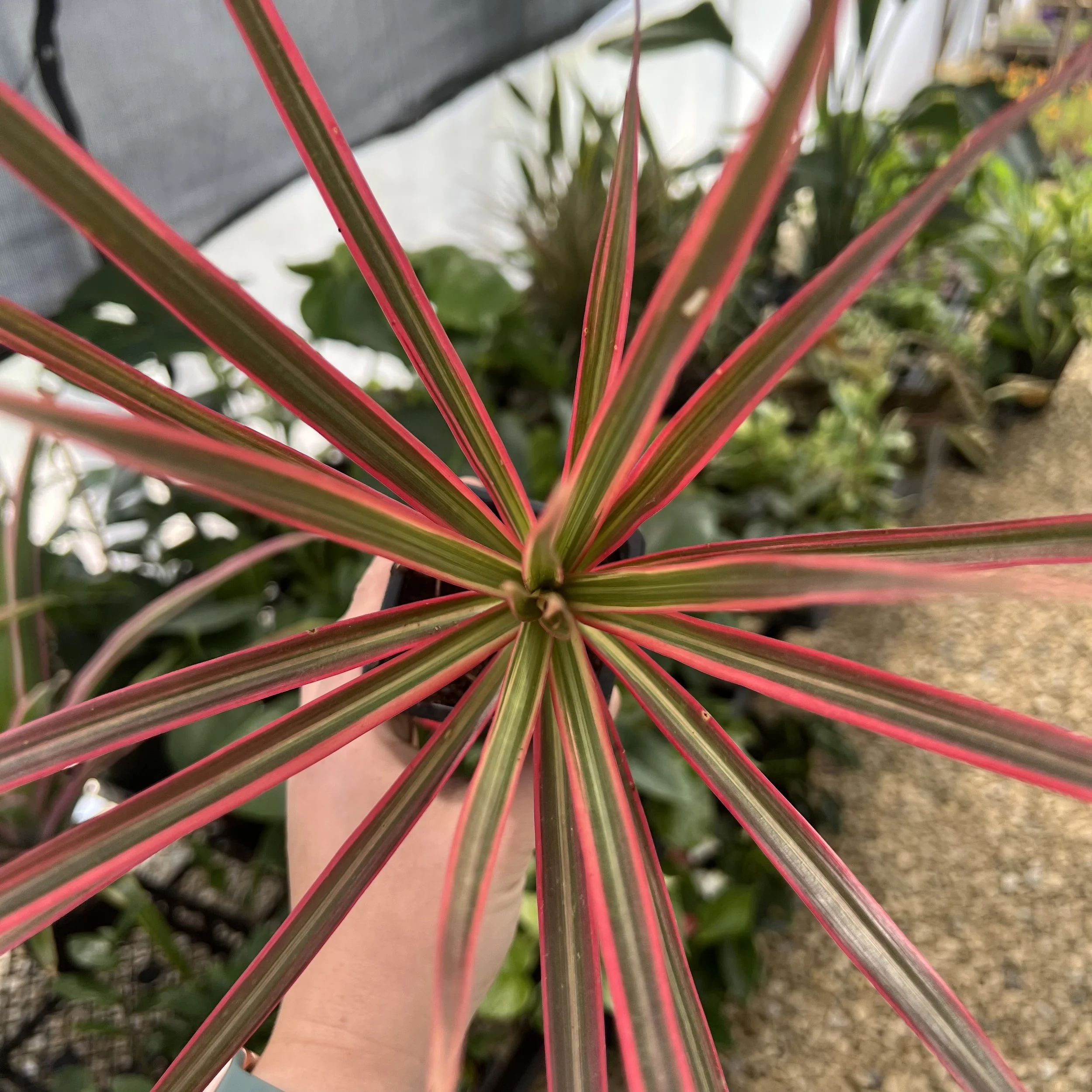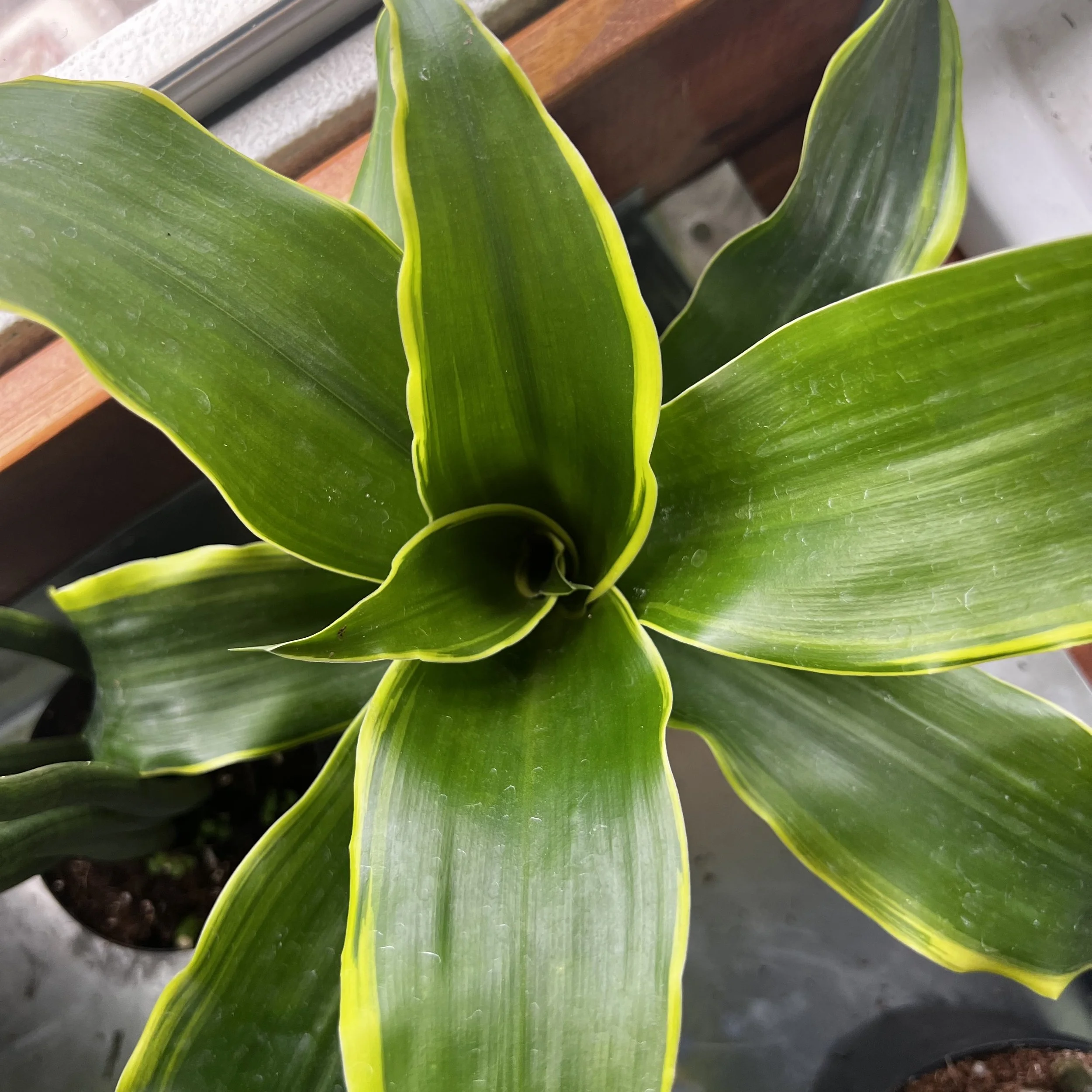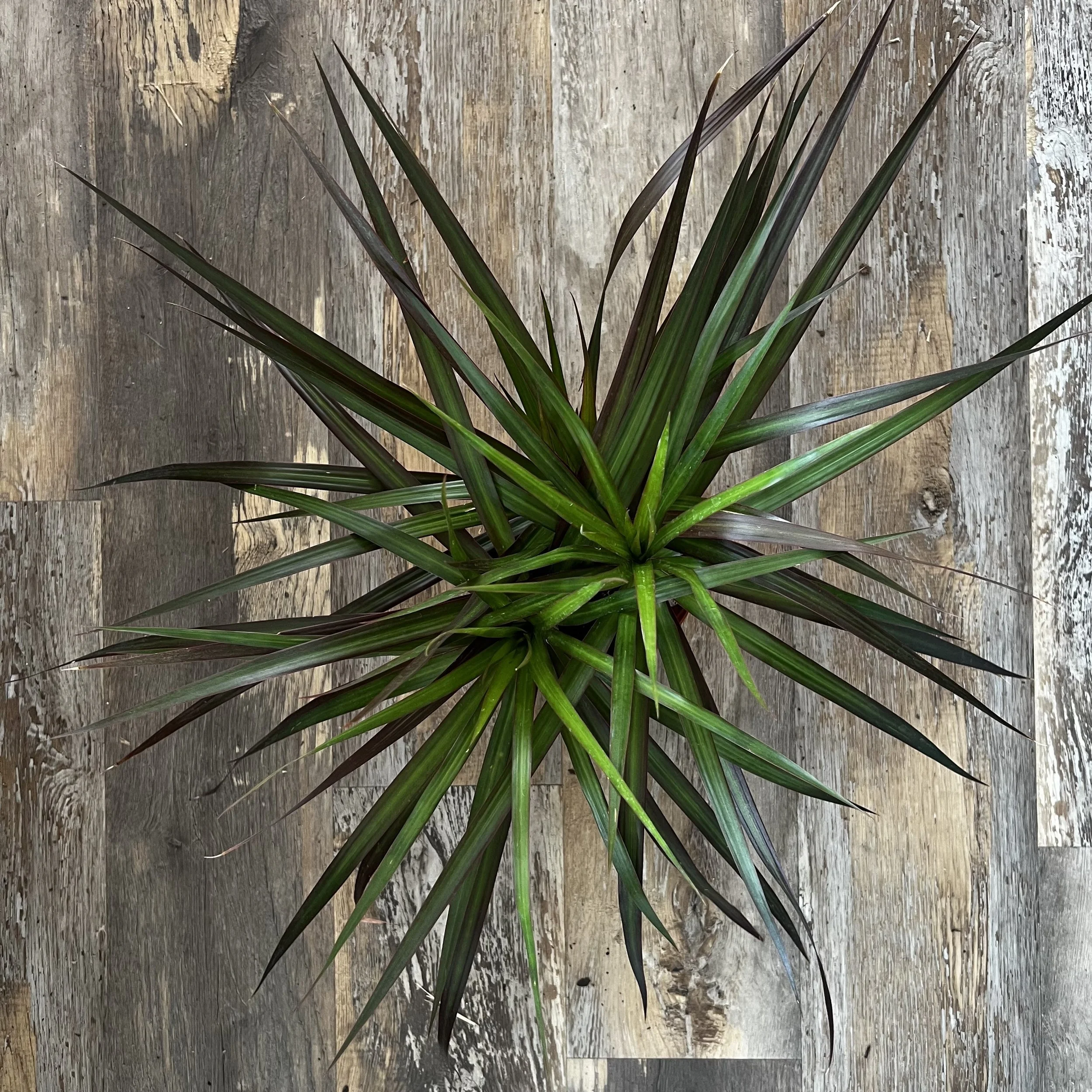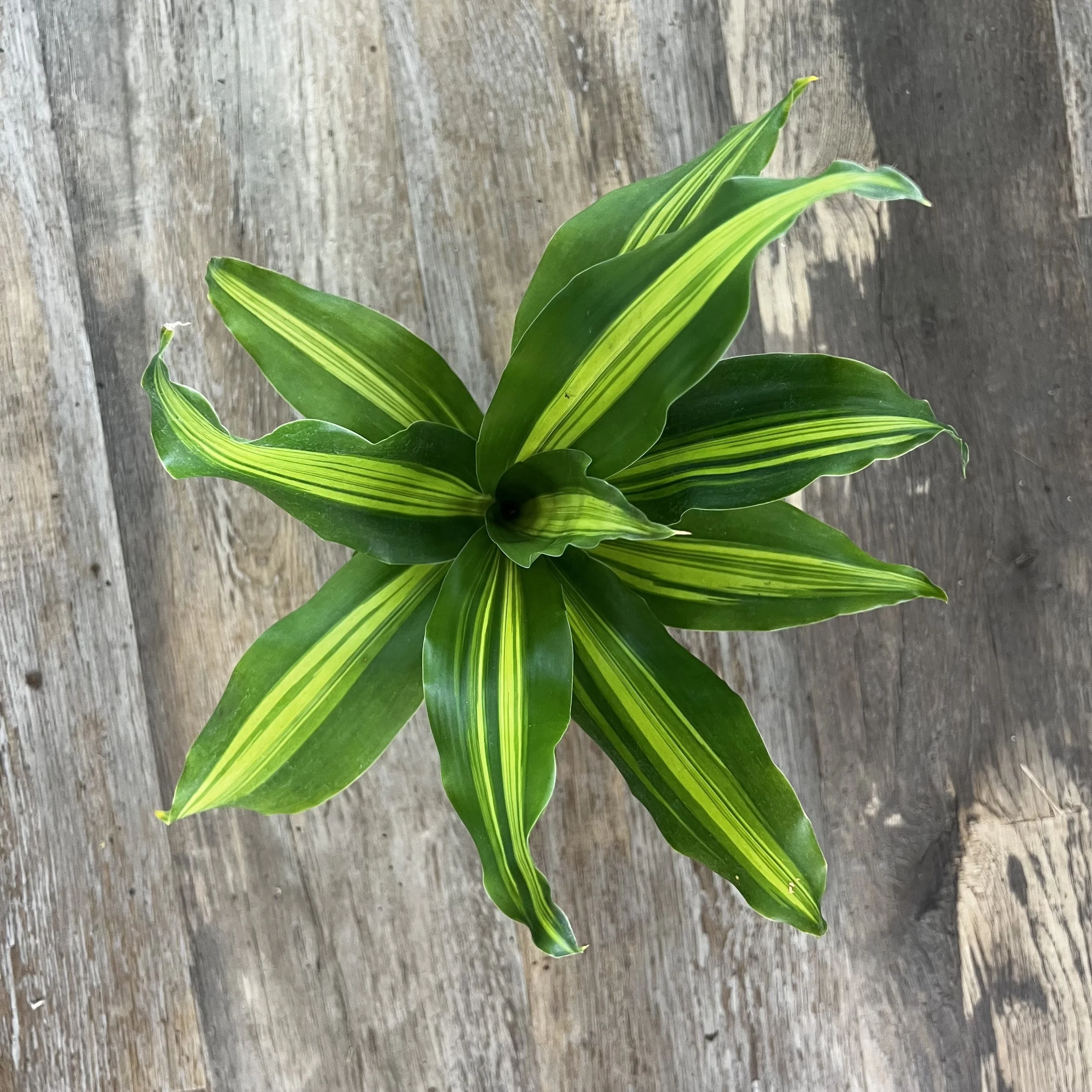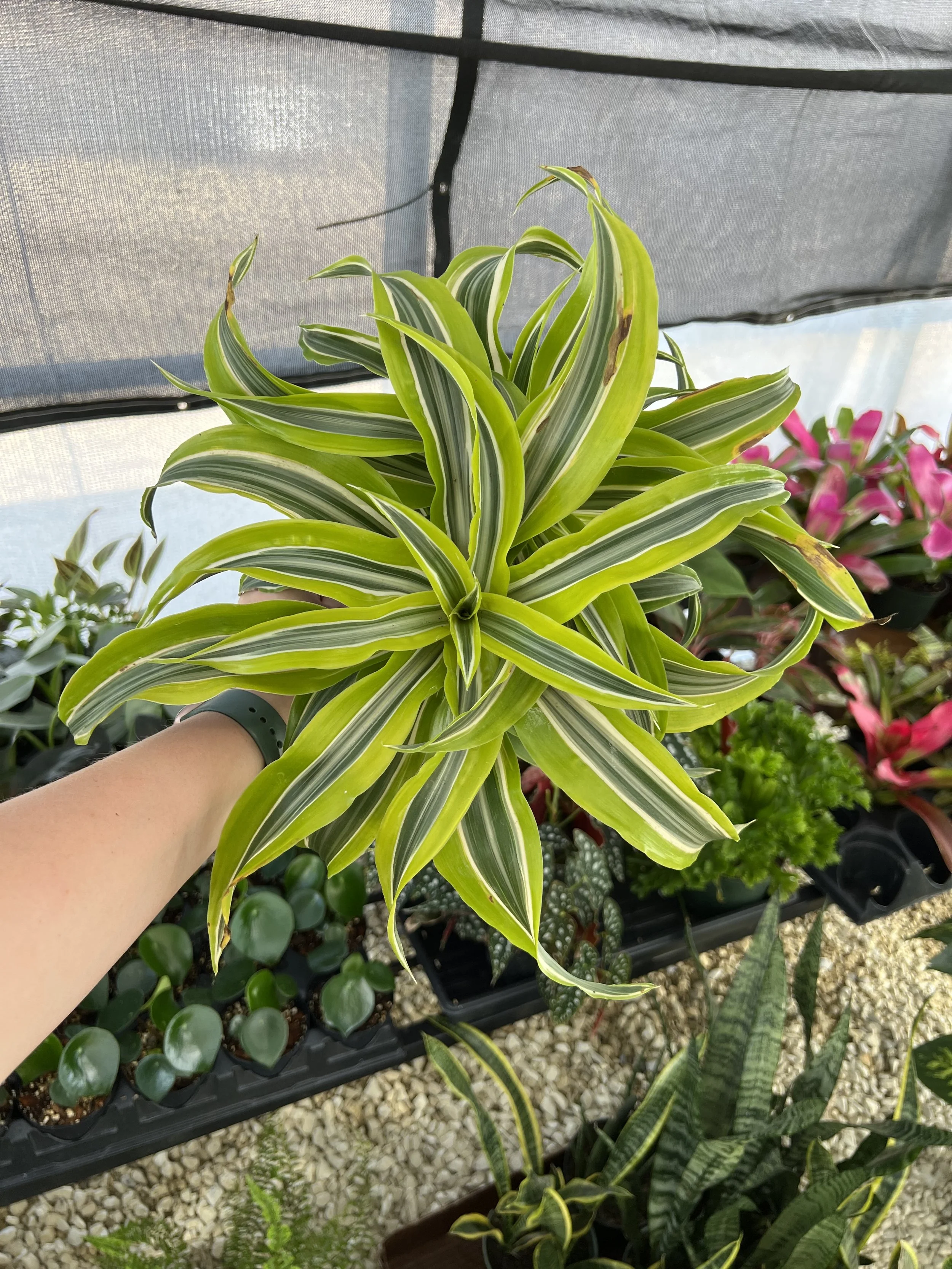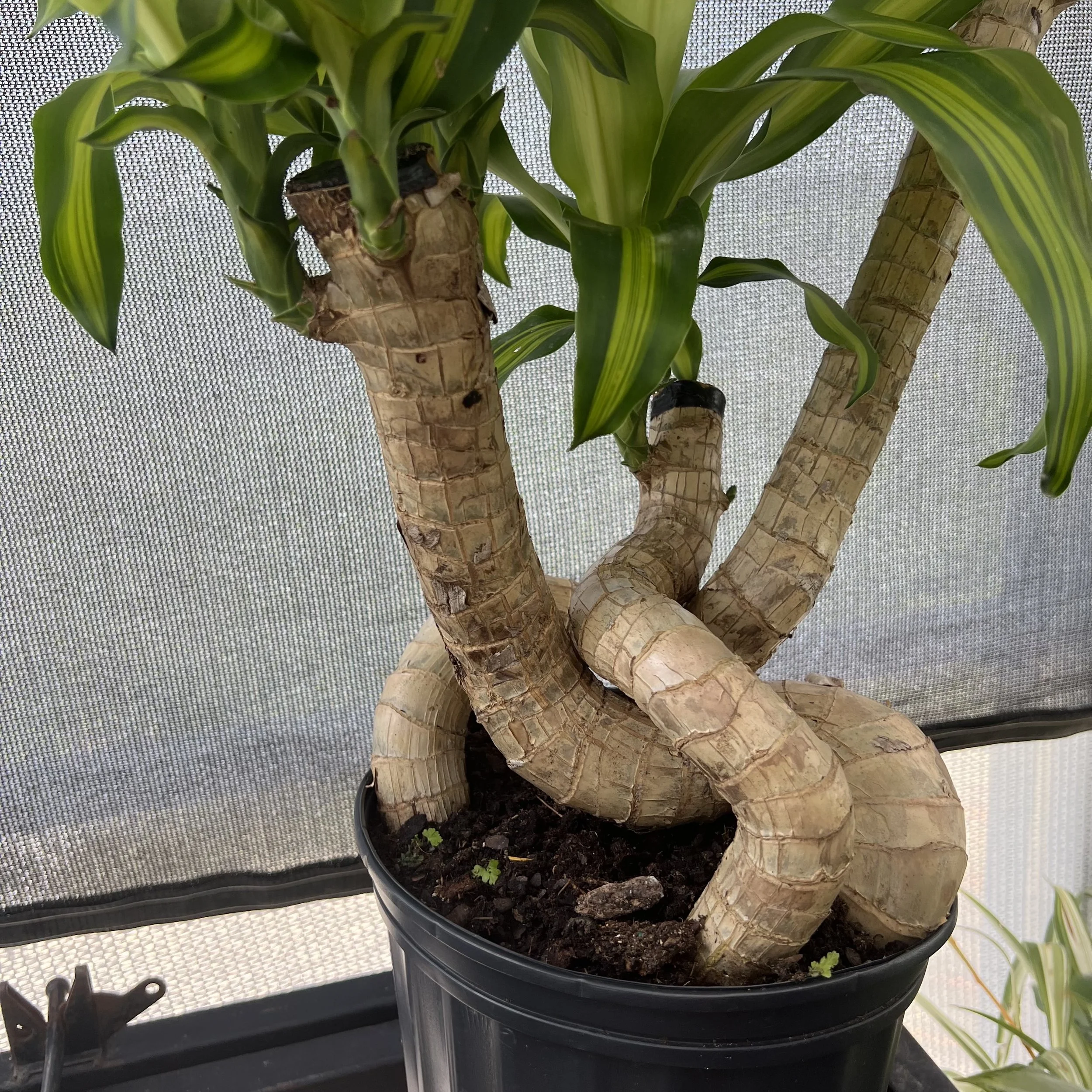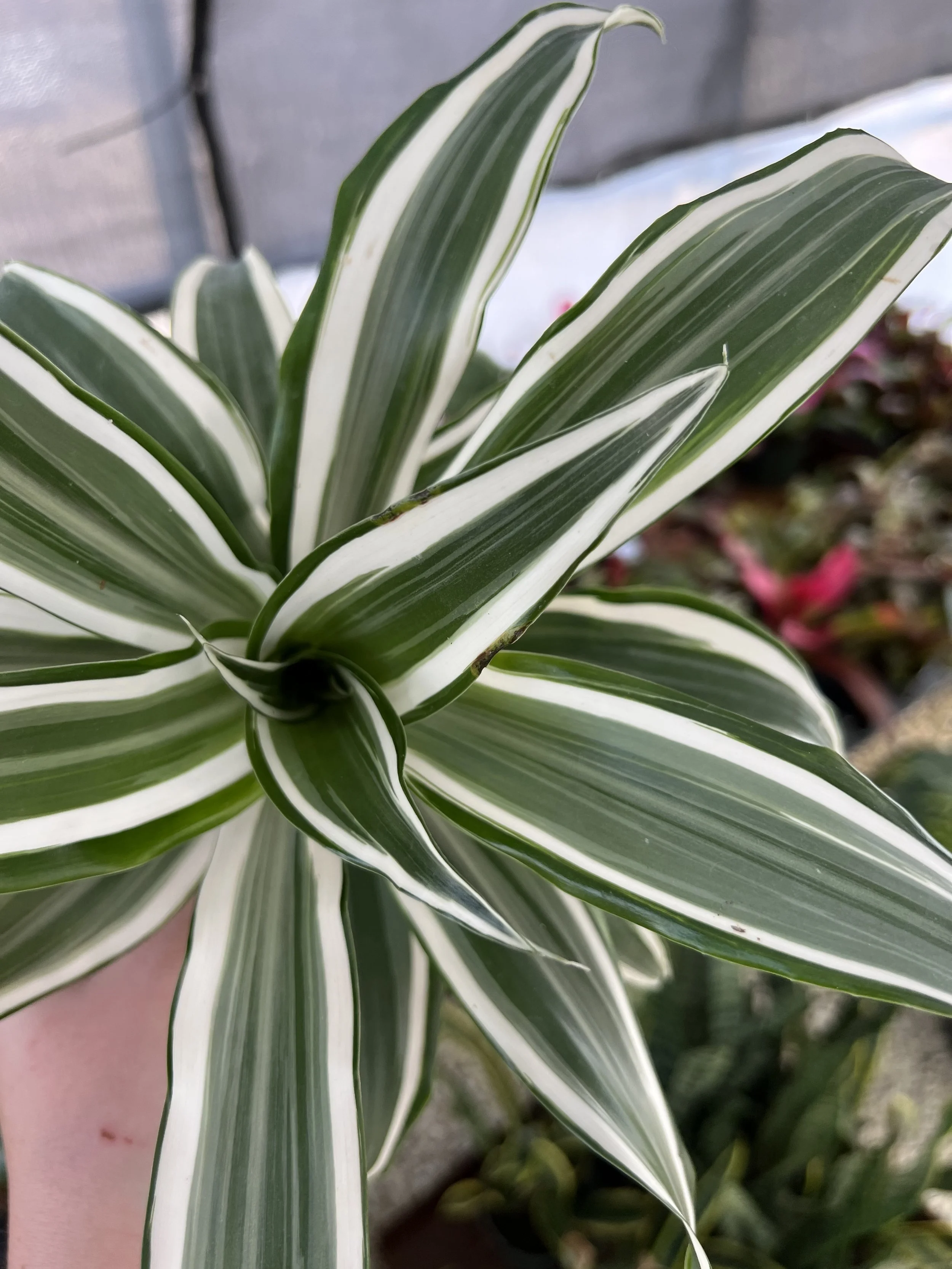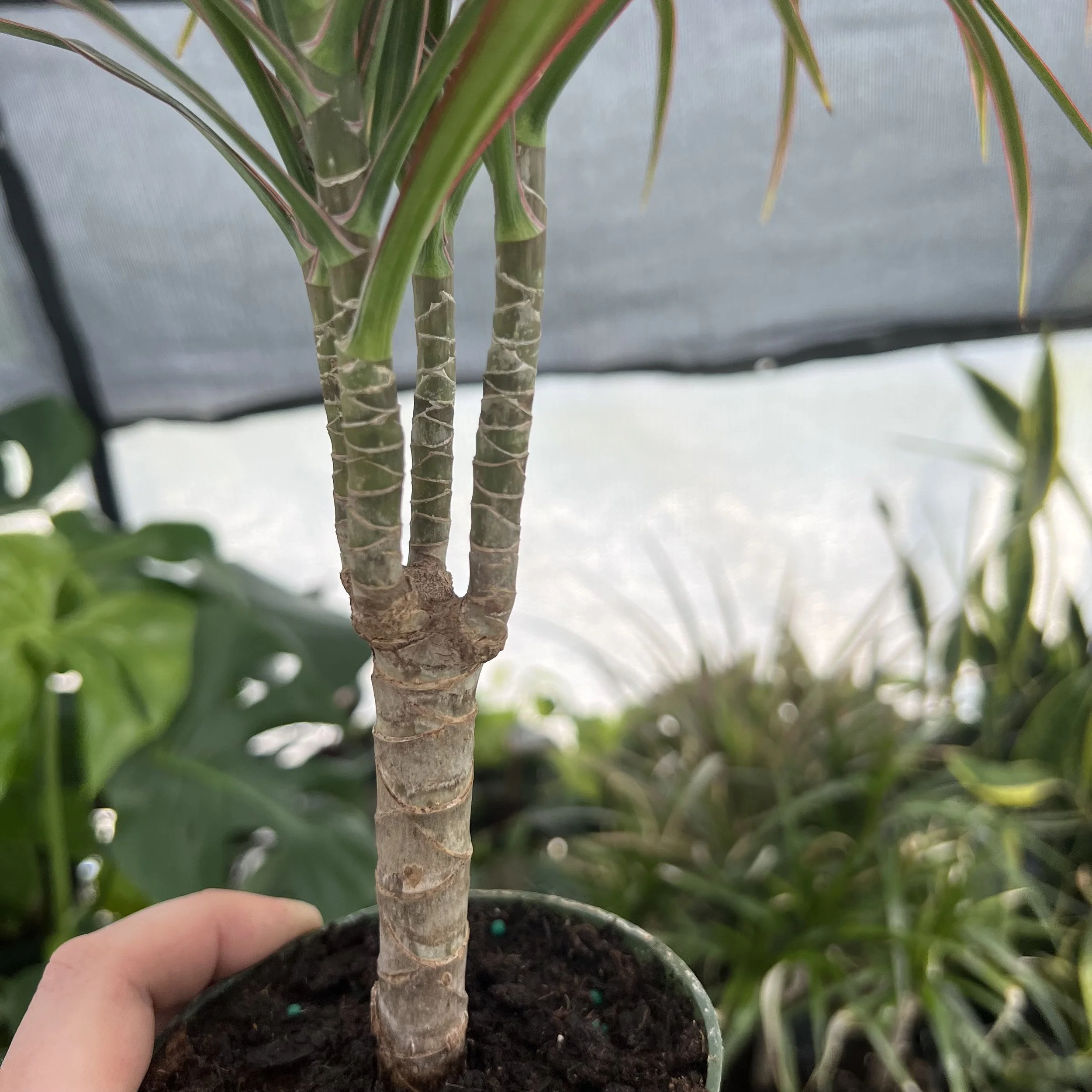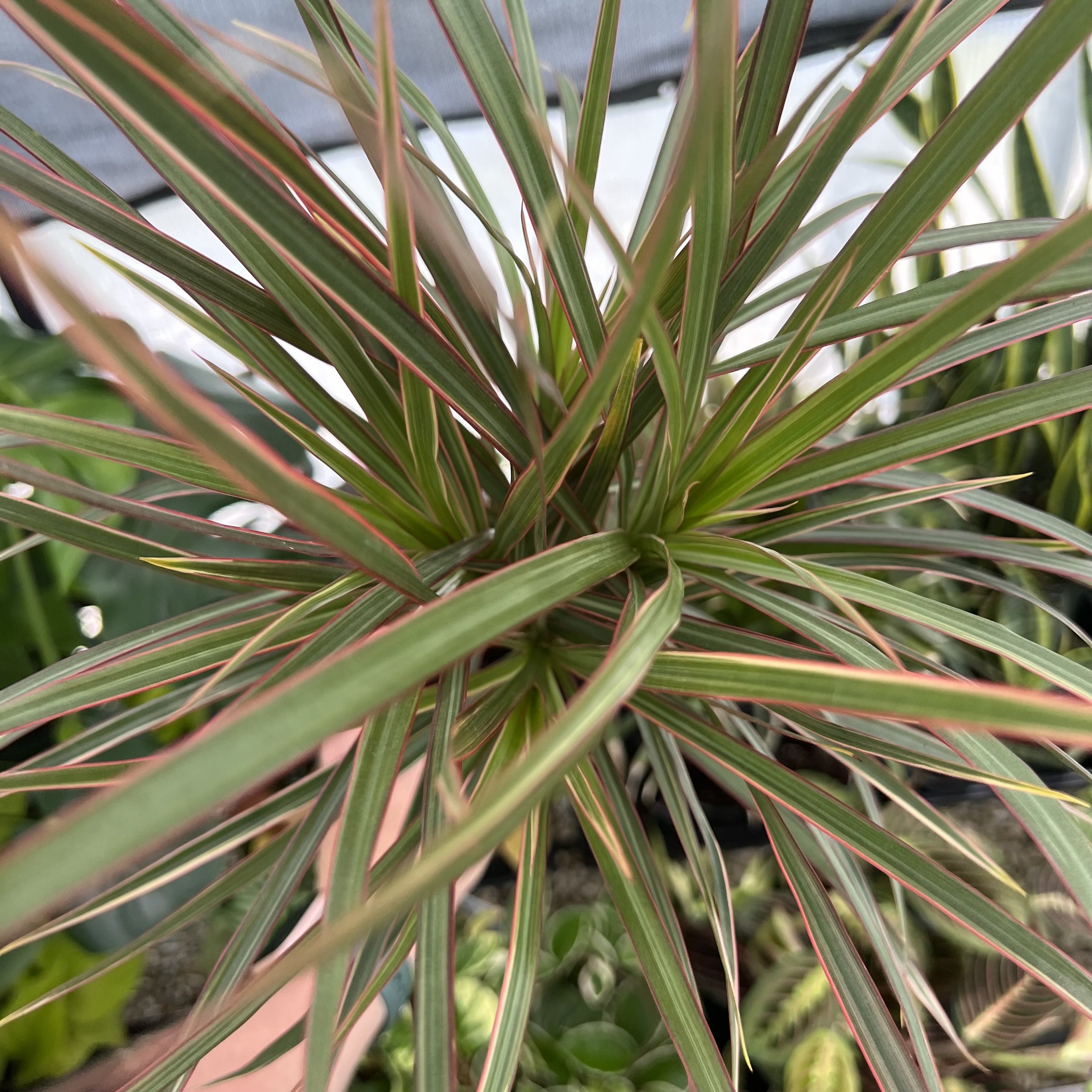
DRAGON PLANT
& CORN PLANT
Dracaena marginata | Dracaena fragrans
Family Asparagaceae
-
Light: Dracaena plants like low to medium light levels. To prevent excess stretching and color fade, increase light levels.
Temperature: 60-85 F
Humidity: medium
Avoid dry climates to prevent quick dry down and leaf tip burn.
-
Water: Dracaena require moist potting mix but never soaked. Allow the mix to dry about 1-2” deep in the container before watering again. If the mix stays dry for too long between watering, leaf tips will burn.
Repotting: Repot every 1-2 years into a slightly larger container (1-2” increased diameter or depth). Use a general purpose potting mix.
Fertilizing: Either…
Water Application: Incorporate fertilizer into your watering cycle once per month March through September. Dilute an all purpose fertilizer (20-20-20) by half OR use your favorite fertilizer rated for houseplant use in your water.
Slow Release: Incorporate slow release fertilizer pellets into the top inch of potting soil every 6 months. Apply the rate indicated for indoor plants on the label. If no recommendation for houseplants is present, apply 1/4 to 1/2 the listed rate.
-
Asparagaceae has one obvious member, and it’s a favorite vegetable of many—asparagus! Did you know that the vegetable we consume is actually a flower spike? There are over 2500 genera in this family because of the common flower spike morphology. If you’ve ever seen a dracaena or spider plant flower, you’ll notice they look similar.
A word of caution—just because these houseplants are in the asparagus family, does not mean they are always edible.
-
(Listed in order of commonality…)
Leaf tip burn from dry air or infrequent watering habits
Two-spotted spider mites
Color fading and stretch from low light levels
-
Is dracaena safe for pets?
Dracaena should not be ingested. A compound called saponin naturally occurs in dracaena and causes drooling, incoordination, vomiting and other problematic symptoms.
What do I do if my plant just keeps growing upward?
Dracaena can be “caned” upward, meaning that they can be trained up in a tree-like form. Remove older leaves gradually, and the stem will become woody and taller.
Have a more specific question?
I’m just a few clicks away.

